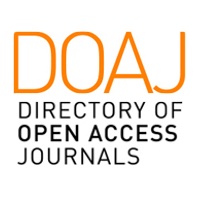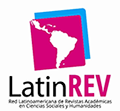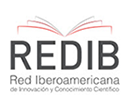évaluation des enseignants et implications sur votre développement professionnel: une revue systématique
DOI :
https://doi.org/10.31639/rbpfp.v11i22.275Mots-clés :
Desenvolvimento profissional, Avaliação docente, Trabalho colaborativoRésumé
A avaliação que é feita no âmbito do processo de desenvolvimento profissional (DP) do professor é um dos principais desafios para o sistema educativo. Por meio de uma revisão sistemática, pretende-se analisar e identificar fatores inerentes ao processo de avaliação dos professores e que influenciam o seu desenvolvimento profissional (DP), assim como analisar as potencialidades da avaliação no DP. A partir destes objetivos foram definidas as palavras-chave que orientaram a pesquisa feita em diferentes bases de dados eletrónicas selecionadas (entre o período de 2009-2019). Foram selecionados 10 estudos de acordo com os critérios de inclusão/exclusão previamente definidos para este estudo.
Os resultados desta revisão sistemática evidenciam que a avaliação potencia o DP. É ela (avaliação) que norteia o processo de DP, não só através da autoformação do próprio professor, mas também pelo olhar atento sobre as componentes científico-pedagógicas do professor, relacionando estes aspetos com fatores como a motivação, as lideranças e as relações profissionais.
Téléchargements
Références
AVALOS, B. Teacher professional development in Teaching and Teacher Education over ten years. In Teaching and Teacher Education, 27 (1), 10-20. (2011).
AVIDOV-UNGAR, O. A model of professional development: teachers' perceptions of their professional development. In Teachers and Teaching, 22:6, 653-669. (2016).
BAKER, J., CHASELING, M., BOYD, W., & SHIPWAY, B. Teachers’ response to a new mandatory professional development process: does it make a difference? in Professional Development in Education, 44:4, 570-582. (2018).
BALAHADIA, F. F., FERNANDO, M. C., & JUANATAS, I. C. Teacher's Performance Evaluation Tool Using Opinion Mining with Sentiment Analysis. IEEE Region 10 Symposium, (pp. 95-98). Bali, Indonesia. (2016).
BORG, S. Evaluating the Impact of Professional Development. In RELC Journal, 49, 195–216. (2018).
BRADFORD, C., & BRAATEN, M. Teacher evaluation and the demoralization of teachers. in Teaching and Teacher Education, 49-59. (2018).
BRAMWELL, D., ANDERSON, S., & MUNDY, K. (2014). Teachers and Teacher Development: A Rapid Review of the Literature. Ontario Institute for Studies in Education University of Toronto - Canada: Aga Khan Foundation Canada .
COLDWELL, M. Exploring the influence of professional development on teacher careers: A path model approach. In Teaching and Teacher Education, 61, 189-198. (2016).
DANIELSON, C. New trends in teacher evaluation. In Educational Leadership (Vol. 5, pp. 12-15). Alexandria: ASCD's flagship publication (Association for Supervision and Curriculum Development). (2001).
DANIELSON, C. Enhacing profession a practice. A framework for teaching (3º ed.). Alexandria - USA: ASCD - Association for Supervision and Curriculum Development. (2013).
DARLING-HAMMOND, L. [et al] Evaluating teacher evaluation. Phi Delta Kappan, 96, 8-15. (2012).
DAVIS, E. A., & KRAJCIK, J. S. Designing educative curriculum materials to promote teacher learning (Vol. 34(3)). Educational Researcher. (2005).
DE KETELE, J.-M. A avaliação do desenvolvimento profissional dosprofessores: postura de controlo ou postura de reconhecimento? In M. P. Alves, & E. A. Machado, O Pólo de Excelência, Caminhos para a Avaliação do Desempenho Docente (pp. 13-31). Porto: Areal Editores. (2010).
DELVAUX, E. [et al] How may teacher evaluation have an impact on professional development? A multilevel analysis. In Teaching and Teacher Education, 1-10. (21 de Junho de 2013).
FULLAN, M. (1987). Implementing the implementation plan. In M. W. (eds), Staff development for school improvement. New York: Falmer Press.
GARCIA, C. M. Desenvolvimento Profissional: passado e futuro. In Sísifo – Revista das Ciências da Educação, n.2, 7-22. (Jan/Abril de 2009).
GIRVAN, C., CONNEELY, C., & TANGNEY, B. Extending experiential learning in teacher professional development. In Teaching and Teacher Education, 58, 129-139. (2016).
GOLDRICK, L. Improving Teacher Evaluation To Improve Teaching Quality. Washington, DC: Center for Best Pratices. (2002).
GRISSOM, J. A., & LOEB, S. Assessing principals’ assessments: Subjective evaluations of teacher effectiveness in low-and high-stakes environments. Education Finance and Policy, 369–395. (2017).
GUSKEY, T. R. Professional development and teacher change. Teachers and Teaching, 381-391. (2002).
HARGREAVES, A. O Ensino na Sociedade do Conhecimento: A educação na era da insegurança. Porto: Porto Editora. (2003).
HILL, H. C. Fixing teacher professional development. Phi Delta Kappa International, 90, 470-477. (2009).
IZADINIA, M. Teacher educators’ identity: a review of literature. In European Journal of Teacher Education, 37:4, 426-441. (2014).
KING, F. Evaluating the impact of teacher professional development: an evidence-based framework. In Professional Development in Education, 40:1, 89-111. (2014).
KRAFT, M. A., & GILMOUR, A. Can Evaluation Promote Teacher Development? Principals' Views and Experiences Implementing Observation and Feedback Cycles. Educational Administration Quarterly , 52, 711-753. (2016).
LEJONBERG, E., ELSTAD, E., & CHRISTOPHERSEN, K. A. Teaching evaluation: antecedents of teachers’ perceived usefulness of follow-up sessions and perceived stress related to the evaluation process. In Teachers and Teaching, 24:3, 281-296. (2018).
LOUCKS-HORSLEY, S. L. Designing professional development for teachers (3ª ed.). Thousand Oaks, California: Corwin Press. (2010).
MAGEE, D. Systematic reviews (meta-analysis) and functional outcome measures (apostila). Developmental Editor: B. Aindow. (1998).
MCCHESNEY, K., & ALDRIDGE, J. M. A review of practitioner-led evaluation of teacher professional development. In Professional Development in Education, 45:2, 307-324. (2019).
MURPHY, R. Testing Teachers: What works best for teacher evaluation and appraisal. Londres: The Sutton Trust and the Education Endowment Foundation. (2013).
REID, K., & KLEINHENZ, E. Supporting teacher development: Literature review. Canberra: Department of Foreign. (2015).
SHERMAN, R. [et al] Professional Development Resource Guide for Adult Educators. Washington, DC.: Pelavin Research Inst. (1998).
SHINKFIELD, A., & STUFFLEBEAM, D. Teacher Evaluation – Guide to effective practice. USA: Kluwer Academic Publishers. (1995).
SHULMAN, J. H. Case methods in teacher education. Chicago: Teracher Collega Press. (1992).
SPROTT, R. A. Factors that foster and deter advanced teachers’ professional development. In Teaching and Teacher Education, 321-331. (2019).
SU, Y., FENG, L., & HSU, C.-H. Accountability or authenticity? The alignment of professional development and teacher evaluation. In Teachers and Teaching, 23:6, 717-728. (2017).
SUBITHA G, V. Re-conceptualizing teachers’ continuous professional development within a new paradigm of change in the Indian context: an analysis of literature and policy documents. In Professional Development in Education, 44, 76-91. (2017).
SUGRUE, C. Rhetoric's and realities of CPD across Europe: from cacophony towards coherence? In C. D. (Org.), International Handbook on the Continuing Professional Development of Teachers (pp. 67-93). Maidenhead: Birks: Open University Press. (2004).
TAYLOR, E.S. & TYLER. The effect of evaluation on performance: Evidence from longitudinal student achievement data of mid-career teachers. Cambridge: National Bureau of Economic Research working paper. (2011).
THORPE, M. Handbook of Education Technology. (1998). Obtido de http://www2.rgu.ac.uk/celt/pgcerttlt/evaluating/eval2.htm: http://www2.rgu.ac.uk/celt/pgcerttlt/evaluating/eval2.htm
TORGERSON, C. (2003). Systematic Reviews. London: Continuum.
VILAR, A. M. O Professor Planificador. (4ª ed ed.). Porto: Edições ASA. (2000).
VILLEGAS-REIMERS, E. Teacher professional development:an international review of the literature. Paris: International Institute for Educational Planning. (2003).
WARRING, D. F. Teacher Evaluations: Use or Misuse?. In Universal Journal of Educational Research, 703-709, (2015).
Téléchargements
Publiée
Comment citer
Numéro
Rubrique
Licence
Le droit d'auteur appartient exclusivement aux auteurs. Les droits de licence utilisés par le périodique sont la licence Creative Commons Attribution-NonCommercial 4.0 International (CC BY-NC-SA 4.0): Ces sont permis le partage (la copie et la distribution de matériel sous n’importe quel support ou format) et l'adaptation (remix), la transformation et la création de matériel à partir du contenu.






























